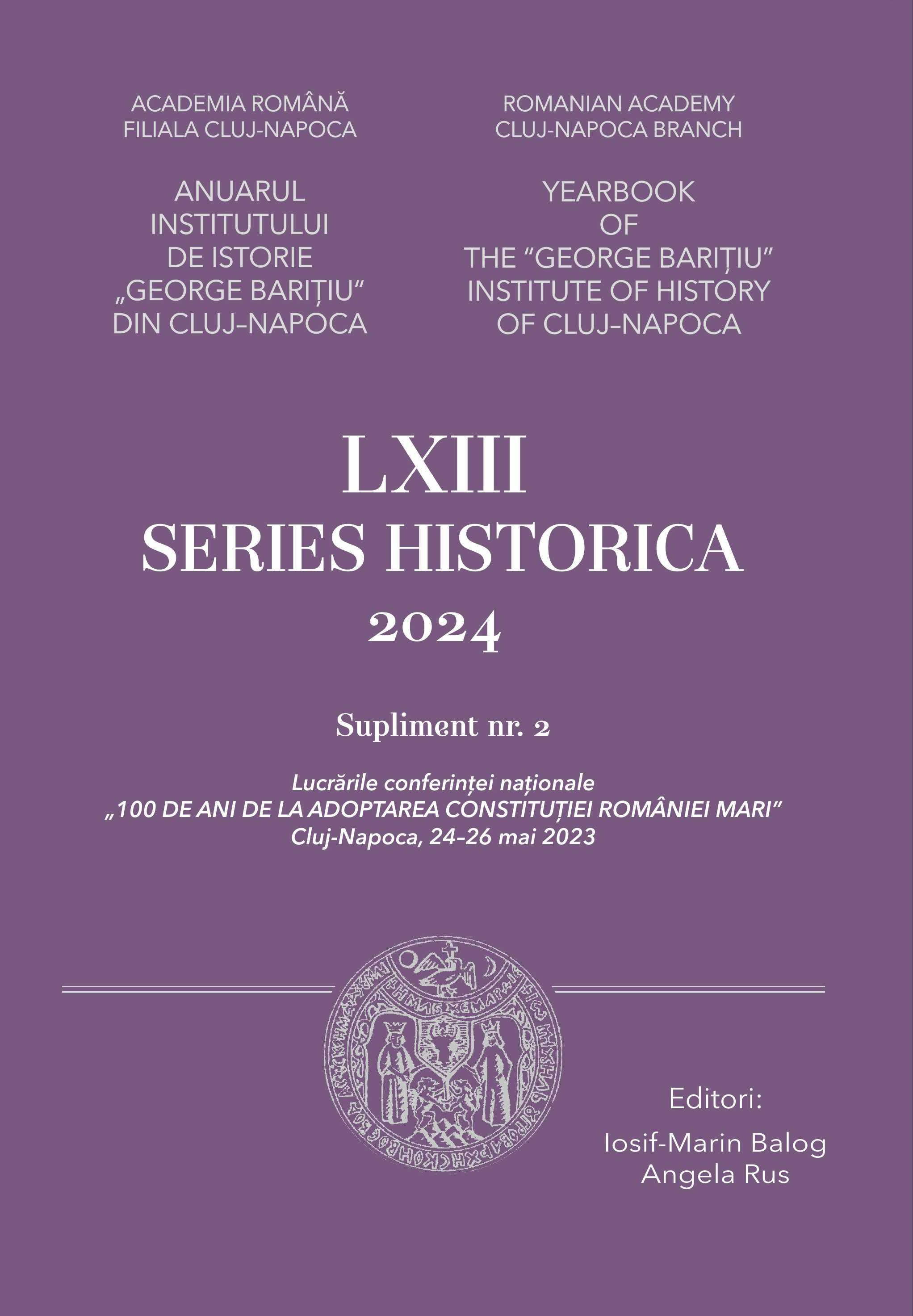Constituționalism, învățământ și drepturile educaționale după 1923 – cale a modernizării României. Studiu de caz: minoritatea maghiară
Constitutionalism, education and educational rights after 1923 – the path of Romania's modernization. Case study: the Hungarian minority
Author(s): Zoltán SalánkiSubject(s): Education, Constitutional Law, Local History / Microhistory, Interwar Period (1920 - 1939), Ethnic Minorities Studies
Published by: Editura Academiei Române
Keywords: constitution; law; education; school; ethnic minorities; educational rights; Hungarian minority;
Summary/Abstract: Broadly speaking, constitutionalism is defined as a set of principles that promote the idea that the authority of government flows from and is limited by a body of fundamental laws that are above the will and arbitrariness of individual or community decision. In this sense, a type of political organization can be considered constitutional to the extent that within it the mechanisms of power control function, i.e. the separation of powers in the state. These institutionalized mechanisms are meant to prescribe, regulate and guarantee the rights, freedoms and obligations of citizens. Such a fundamental right is the right to education. In fact, it was not only the right but also the obligation of citizens to complete a minimum training stage that contributed essentially to the formation of modern states. The present study brings into debate both the conjugation between education and the evolution of Romanian society as a whole, referring in this case to the significant moments represented by the reforms of the educational field, as well as the effects of the first-rate laws in the educational field on the Hungarian minority.
Journal: Anuarul Institutului de Istorie »George Bariţiu« - Series HISTORICA - Supliment
- Issue Year: LXIII/2024
- Issue No: 2
- Page Range: 99-112
- Page Count: 14
- Language: Romanian

